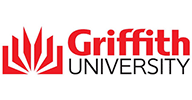Course overview
Make a start on your rural operations career with this entry-level course. This qualification will give you the practical skills you need to work in varied capacities in agriculture, horticulture, and animal care.
According to the Australian Government's Job Outlook service, the number of people working as general farm hands grew very strongly over the past five years. There is stable future growth predicted in this area with around 3,000 job openings expected over the next five years.
If you choose to study the rural operations stream, you will develop basic knowledge and practical skills across livestock handling, health and welfare, fencing, machinery maintenance and operation, and more. If you choose to study the horticulture stream, you will learn to recognise, propagate and plant different plants, operate horticultural machinery and equipment, treat weeds, pests and diseases, construct landscape, paving and retaining walls, establish turf, and more. You can also choose to specialise in animal studies with a focus on small animals. Our passionate, industry experienced staff are still strongly embedded in the industry and will give you the one-on-one guidance you need to succeed.
Successful completion of this course will give you the skills to work across a variety of entry-level positions in rural operations, agriculture, horticulture, or animal care including station hand, first year jackaroo/jillaroo, yardsman, gardener, landscaping assistant, nursery hand, and more. You will also have a solid foundation to continue with further study.





